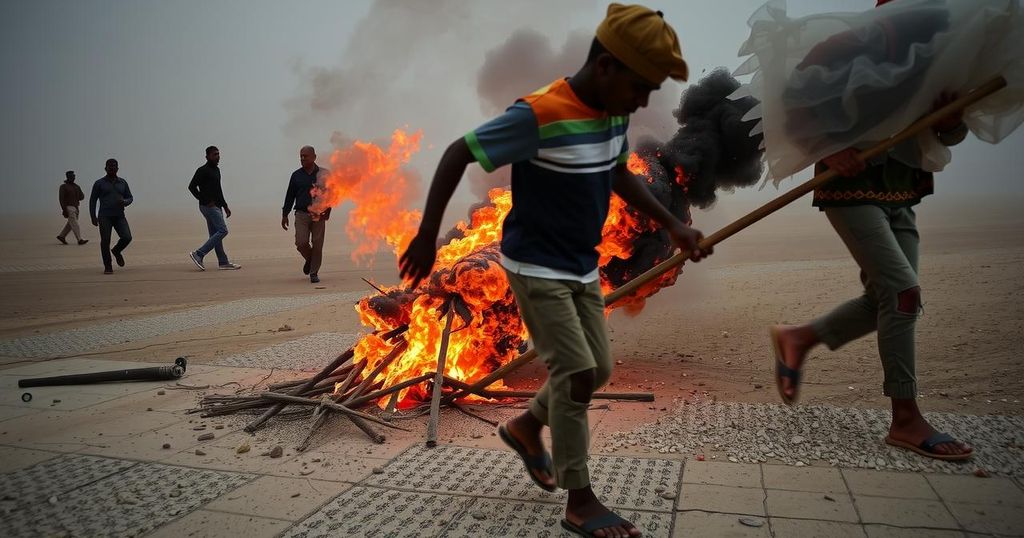World News Update: Violence and Humanitarian Crises in South Sudan, Syria, and Gaza

Communal violence in South Sudan has resulted in significant civilian casualties, including abductions and sexual violence. In Syria, the WHO has delivered critical medical supplies as part of ongoing humanitarian efforts. Meanwhile, in Gaza, harsh conditions have led to infant fatalities due to hypothermia, with restricted aid access severely hampering relief efforts.
Communal violence continues to be a significant issue in South Sudan, resulting in considerable harm to civilians, as reported by UN peacekeepers. The UN Mission in South Sudan (UNMISS) communicated its concerns regarding the alarming rise in abductions and incidents of sexual violence perpetrated against non-combatants from July to September of last year. During this period, there were 299 civilian fatalities, with 310 individuals sustaining injuries and 151 being abducted. Notably, Warrap State witnessed the majority of casualties while Central Equatoria State accounted for a substantial portion of abductions.
UNMISS officials have condemned the ongoing discord between government forces and factions of the National Salvation Front, which continues to jeopardize civilian safety despite previously signed agreements. UNMISS Chief Nicholas Haysom expressed grave concern over the rising violence affecting women and children and underscored the mission’s commitment to civilian protection amidst persistent clashes. He urged local authorities and community leaders to work towards resolving long-standing disputes and urged the South Sudanese government to expedite investigations into human rights abuses.
In Syria, the first UN World Health Organization (WHO) humanitarian air charter of 2025 has successfully delivered over 32 tons of essential medicines and emergency kits to Damascus. This initiative aims to address the urgent medical needs of 300,000 individuals affected by ongoing crises. Earlier, WHO sent nine tons of medical supplies to northeast Syria to bolster healthcare services. The agency continues to expand its relief efforts, recently conducting the first cross-border mission of the year to provide training to paramedics.
Amid continuous support from international partners, including the World Food Programme (WFP), efforts to distribute food and other essentials, such as clothing and blankets for winter, are ongoing. However, the lingering effects of explosive remnants from years of war remain a lethal threat, with recent reports indicating civilian casualties from landmine explosions in the northwest region.
In Gaza, humanitarian conditions are dire, particularly following the reported death of a one-month-old infant due to hypothermia. OCHA noted this as the eighth tragic child fatality attributed to exposure to severe weather conditions since December, emphasizing that such deaths were preventable had essential protective items been accessible. Concurrently, a school-turned-shelter for displaced individuals came under shelling, resulting in injuries.
Despite urgent humanitarian needs, access to northern Gaza remains severely restricted, complicating aid delivery. WHO reported that Kamal Adwan Hospital is entirely nonoperational, and there is no information regarding the detained hospital director, Dr. Hussam Abu Safiya. OCHA’s efforts to reach besieged areas in North Gaza have been thwarted by Israeli authorities, highlighting the grave challenges in meeting the humanitarian needs of the population.
The situation in South Sudan remains precarious due to ongoing communal violence, which has devastated civilian life and exacerbated humanitarian crises. The UN’s involvement is crucial in documenting human rights violations and enforcing protection mandates through peacekeeping efforts. Similarly, Syria continues to face severe humanitarian crises, with the WHO leading relief missions to provide much-needed medical supplies amidst a complex conflict environment. The Gaza Strip suffers from a dire humanitarian situation, exacerbated by cold weather, ongoing violence, and restrictions on aid access, prompting urgent calls for action from international organizations.
In summary, the recent reports indicate escalating violence in South Sudan with dire consequences for civilians and an urgent need for conflict resolution. In Syria, health interventions are expanding despite significant challenges, while in Gaza, the humanitarian situation remains critical, marked by tragic losses and persistent barriers to aid. Continued international support and effective negotiations are essential to alleviate the suffering and restore stability in these regions.
Original Source: news.un.org








